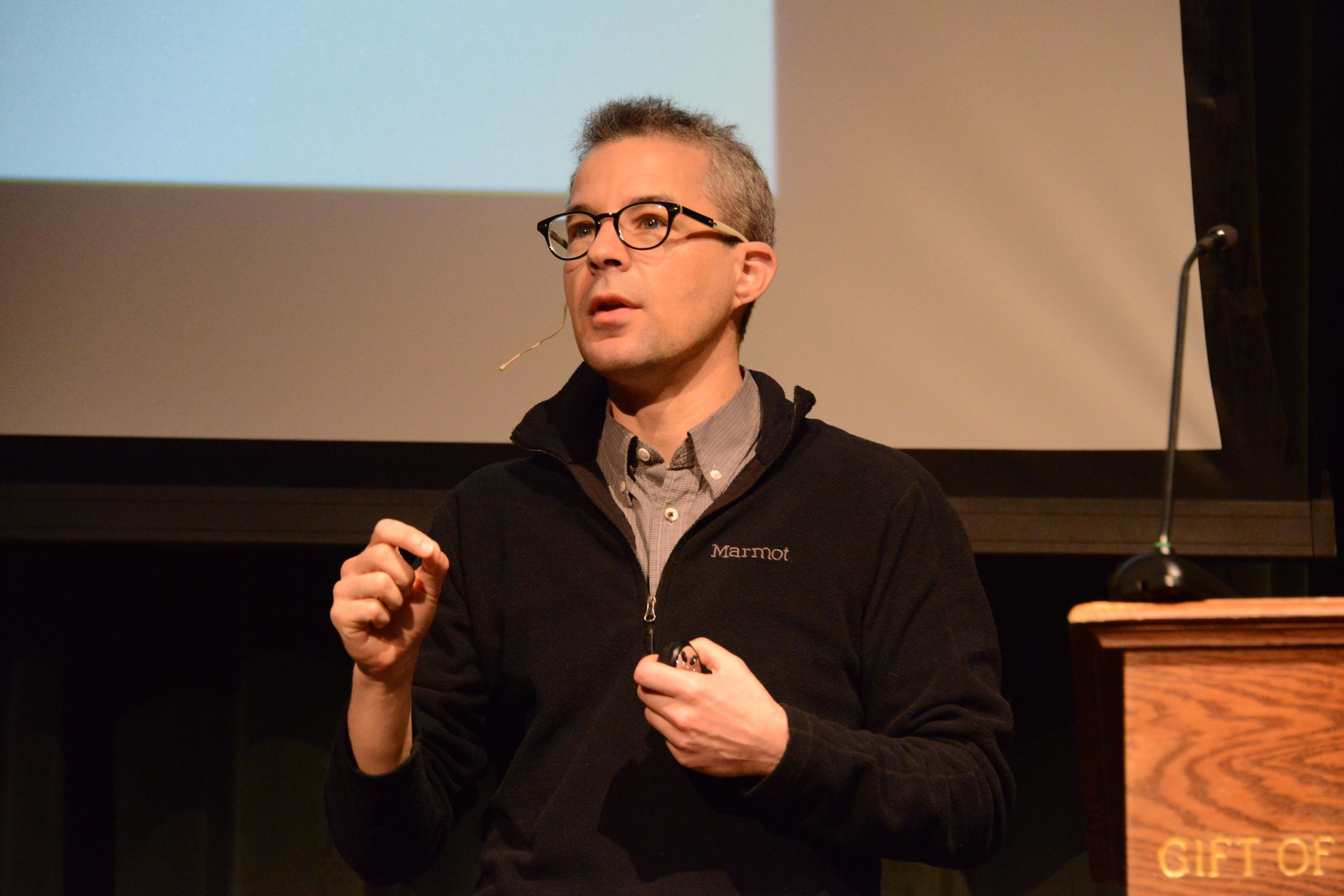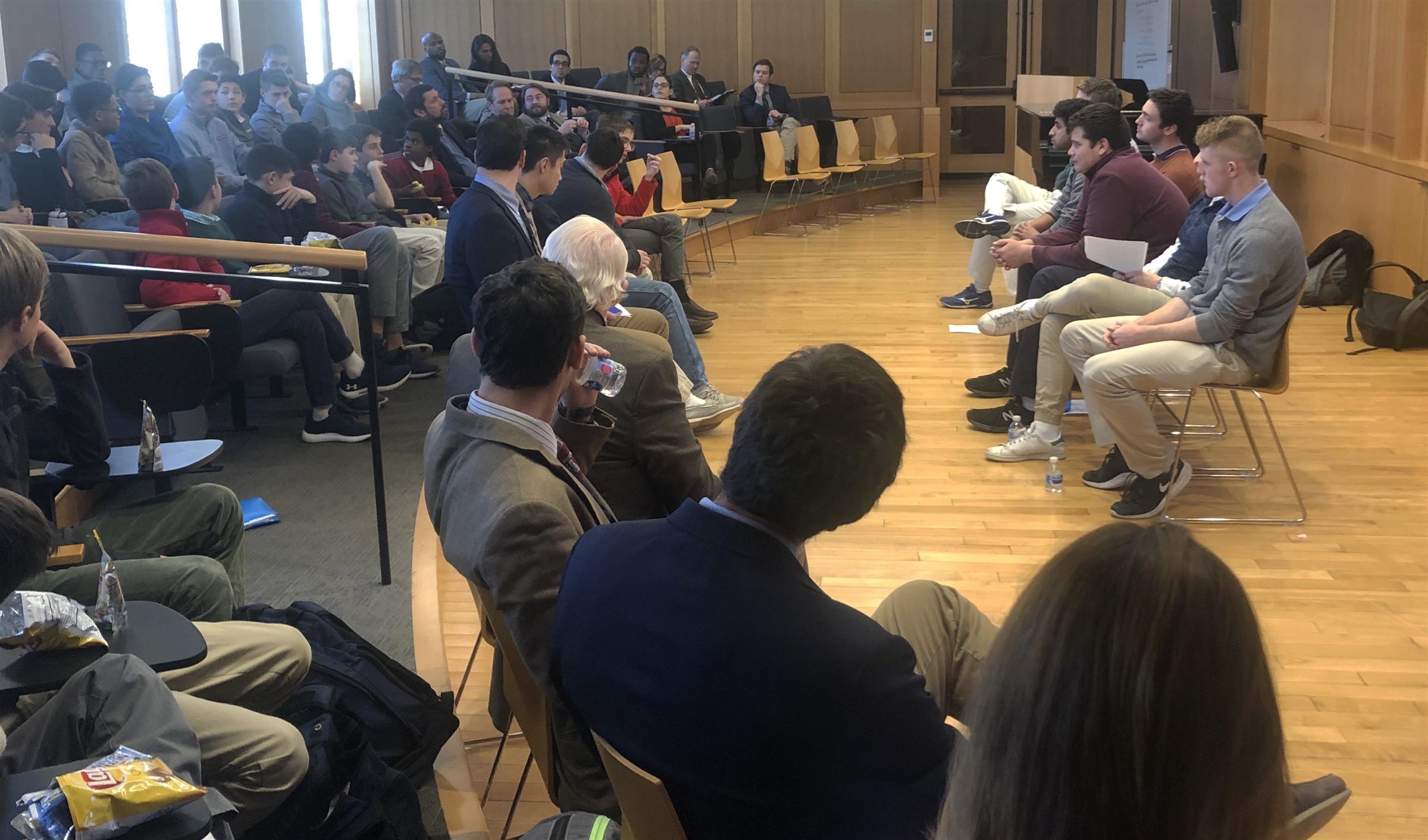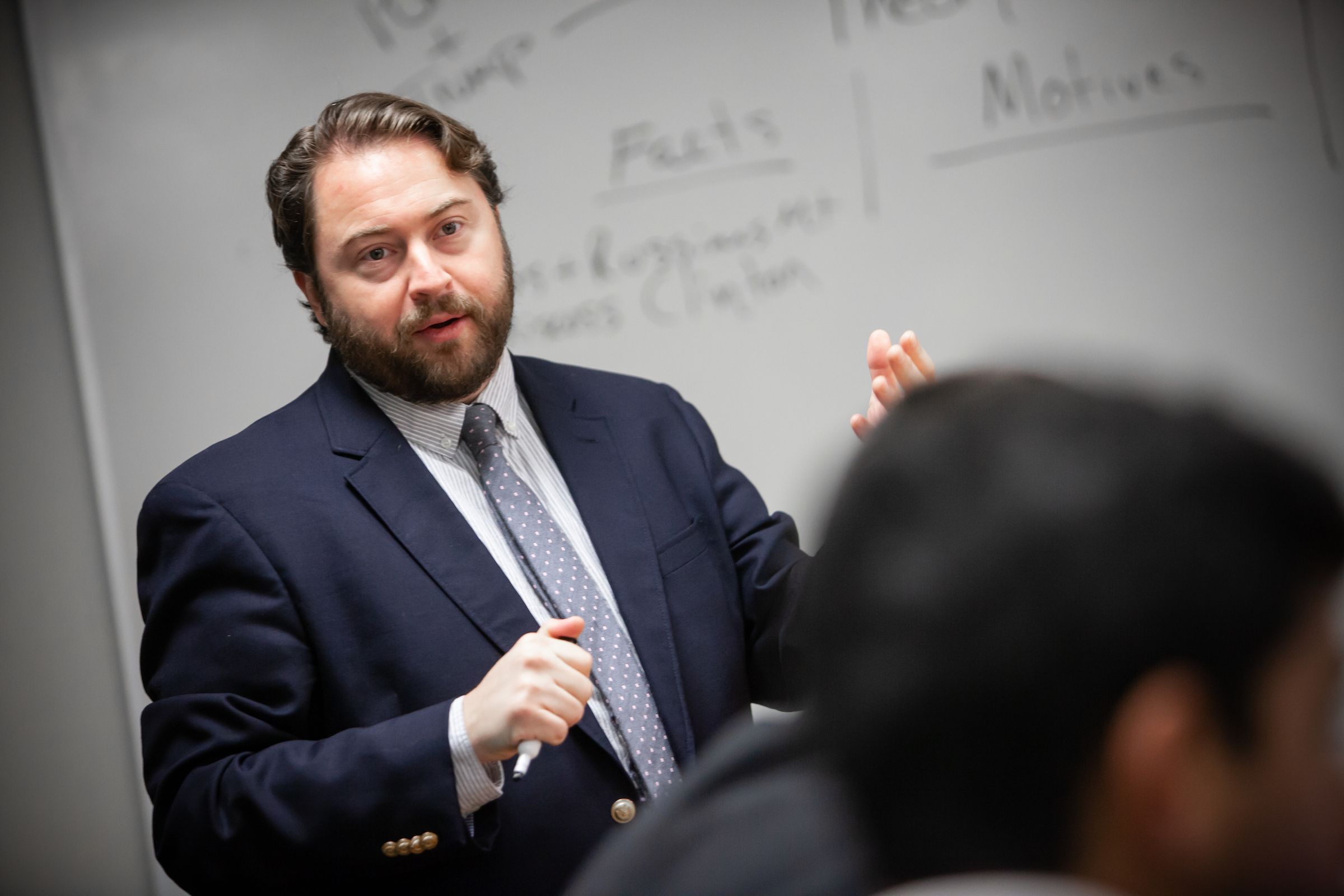“Globally, we’re seeing an increased emphasis on division and othering,” says Dr. Evan McCormick, this year’s Smith Fellow. Both physical and abstract borders, he explains, fill our newspapers, television screens, and Twitter feeds. Literal division at national borders has garnered worldwide attention through chants of “Build that Wall” and boats of asylum-seekers cropping up on European coasts. At the same time, the concept of a border has broadened in recent years. Cyber-attacks between governments bring to light the vulnerability of virtual borders, and events like the white supremacist rally in Charlottesville force us to examine racial borders within our own communities. This fall, Dr. McCormick explored, connected, and contextualized these topics in his course for Class I boys, as well as in a series of Halls addressing the entire RL community.
Dr. McCormick earned his bachelor’s degree from Boston University in 2003. After gaining experience working on Capitol Hill he earned a master’s in International Relations at Yale. He was then hired as a Policy Fellow in the Department of Homeland Security, where he spent time in the Office of International Affairs writing speeches and conducting research for policy papers on issues related to the U.S.-Mexico border. All of this work ultimately informed Dr. McCormick’s Ph.D. research at the University of Virginia. There, he wrote his dissertation on the emergence of democracy promotion in U.S. foreign policy during the 1980s under Ronald Reagan. This dissertation will soon be published by Cornell University Press as his first book, titled Beyond Revolution and Repression: U.S. Foreign Policy and Latin American Democracy, 1980-1989.
Here at Roxbury Latin, Dr. McCormick spent the fall teaching the first half of a course titled Contemporary Global Issues, offered to Class I boys. He and Erin Dromgoole—who will teach the second half of the course in the spring—spend class time exploring contemporary issues through a historical lens. Dr. McCormick themed his semester of the course around borders. He began with units on physical borders, like the one separating the U.S. and Mexico, and those drawn at the end of the Cold War that continue to serve as the root of much friction throughout Europe. Then, Dr. McCormick took a conceptual turn in the course, doing a case study of Charlottesville in 2017. Students discussed how borders aren’t just national lines—they arise on the community level, as well. The final unit of his semester course explored human rights, and moments when countries and groups work across borders to address injustice or suffering.
In addition to his course, Dr. McCormick presented a pair of Halls to the entire RL student body and faculty. His first Hall, on October 18, was titled Other People’s Politics. In it he spoke about Russian intervention in the 2016 U.S. election, reminding his audience that this moment in history may be an opportunity for a reckoning with our own past: “As many have been quick to point out, the U.S. has intervened in other countries’ politics throughout the 20th century. Hopefully this election can prompt us to rethink how the United States can protect its interest in supporting democracy abroad without undermining other countries’ political institutions,” he says. “The idea that forces from beyond our borders could influence ‘our’ politics challenged our notion of sovereignty, about the fairness of elections and the very idea of representation through voting. And yet, in the historical frame, this is not something new, but quite familiar. Fear of subversion has been a staple of American politics. All one has to do is look back to the earliest days of the young republic to find evidence of deep fears of—depending on whether you were a Jeffersonian Republican or a Federalist—the insidious influence of the British and the French.” Dr. McCormick discussed three approaches to political intervention—progressive imperialism, political warfare, and democracy promotion—and ways in which countries, the United States included, have enlisted these actions throughout history. “The best protection against subverting foreign influences in our political system is not fear of what comes from outside our borders; but the strength of institutions that ensure democracy works for those who share in it here at home.”
Dr. McCormick’s second Hall, on December 5, focused on the future of the U.S.-Mexican relationship in the wake of the inauguration of Mexico’s new president, Andrés Manuel López Obrador. “Mexico has always played a liminal role between Latin America and North America,” Dr. McCormick pointed out while describing the relationship as a crossroads. “As the country closest to the United States, it has borne the brunt of U.S. interventionism and integration. Over the last 30 years, in particular, the Mexican government has tightened its relationship with the United States through the North American Free Trade Agreement. But historically, Mexico has been deft at using foreign policy as the realm in which it can stand up to the United States, bolstering its credentials as an anti-imperialist country that promotes sovereignty and non-interference.”
On December 10, Dr. McCormick will also lead a student forum on immigration. Other recent current events forums—a format that has become a regular and popular feature of RL’s extracurricular offerings—have focused on the roles of historical monuments, DACA, and gun violence.
While much of Dr. McCormick’s time at RL has been spent spurring debates about barriers and boundaries, his ultimate aim is that students will look beyond lines that divide. “By historically looking at moments when [borders] matter more or less,” he says, “[I hope] students will understand that much of the rhetoric that’s based on division is something they can—and must—think beyond.”
Twelve years ago, Robert and Salua Smith established the Robert P. Smith ’58 International Fellowship so that Roxbury Latin could bring visiting scholars to campus each year, enhancing our curricula with their insightful perspectives on our increasingly complex world. Over the years, these scholars have educated us on such topics as economic globalization in Africa, modernization in China and India, the modern Middle East, Latin American literature, and the legacy of World War I. Last year, the Smith Scholar Series included four experts on climate change and its far-reaching political, economic, and social effects.










